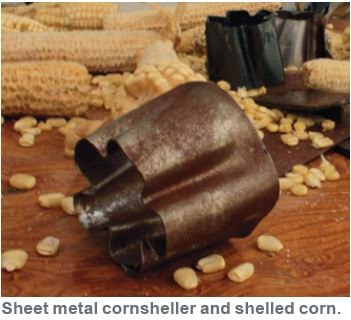Maize
(corn) is one of the most important staple crops in the world. In Asia, maize
production is over 200 billion kilograms a year and it is expected that the
total maize production in developing countries will eventually overtake production
in industrialized countries.
In many rural areas of developing countries,
the maize kernels are removed from the cob by hand in a process called
shelling. Shelling the annual maize harvest by hand typically takes weeks and
may pull children out of school, since processing food for survival takes
priority over education in subsistence farming households. The hardened, dry
maize can also be painful to shell and lead to hand injuries.
Existing alternatives to shelling maize by
hand are often unaffordable or difficult to obtain for subsistence farmers. An
estimated 550 million small-holder farmers in the world lack access to
mechanized agricultural technology. Industrial maize shellers are prohibitively
expensive and small-scale hand-cranked or pedal-powered maize shellers cost
more which is still more than many families can afford. While industrial
shellers are highly productive, their energy infrastructure requirements can
render them unusable in rural villages. Furthermore, mechanized equipment and
stationary pedal-powered devices are difficult to transport to the users. As a
consequence, farmers may be required to travel long distances to process their
crops or the technology may not be able to reach the communities who need it
most.
Another
option is a simple tool that makes it possible to shell maize several times
faster than by hand. The device has the additional advantages of being robust,
portable, transparent to users and only a fraction of the cost of other
alternatives commonly on the market. The maize sheller is currently
mass-produced using injection-molded plastic or cast aluminum. In regions where
the device is not currently being manufactured or distributed, the tool cannot
be locally made using these infrastructure-intensive processes.
There
has been development of several versions of the maize sheller that can be made
using locally available materials and methods.



No comments:
Post a Comment